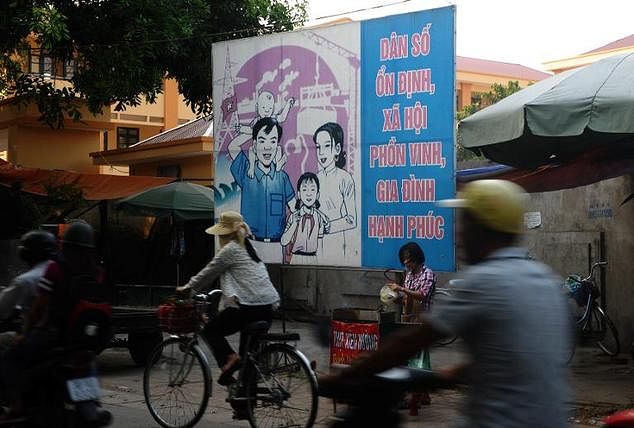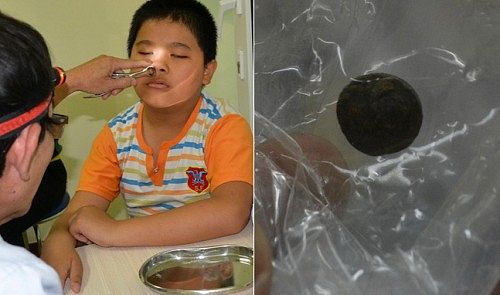After recent health scares from chemically-laced produce and dubious Chinese imports, Vietnamese consumers are becoming increasingly aware of the fact that they don’t know where their food comes from. As this reality sets in, an organic food trend is growing in the nation’s urban centers. But with Vietnam eager to sign onto the Trans-Pacific Partnership Agreement, it may be difficult for this trend to grow in the face of an international, free-trade economy focused on large-scale and increasingly globalized production.
Agriculture is one of Vietnam’s core economic sectors. Even though the importance of agriculture has diminished over the past few years due to increased economic diversity, as of 2005, 60% of the Vietnamese population still made their living from agriculture, forestry and fishing. Today, this trend continues as Vietnam reigns as a top exporter of cash crops such as rice, coffee, cotton, peanuts, rubber, sugarcane and tea. The monetary benefits of these crops are undeniable and are vital to Vietnam’s economic health. And, as it goes with most developing economies, economic health often overshadows that of the population.
But this attitude is quickly changing, at least for Vietnamese consumers who have seen stories of unsafe food on the front pages of their newspapers in recent years:
“People are used to buying from the market and not questioning it. But there’s increasing concern, mostly in urban populations, about where food comes from,” said Dan Dockery, owner of Highway 4, a Vietnamese restaurant chain.
As one can imagine, the push for organic produce is being led by the younger generation, many of whom are raising children. The Diplomat interviewed a 31-year-old Hanoi woman who drives 5 km every weekend to an organic market to make sure she’s providing healthy food for her children.
But behind theses serious but fairly clear health issues, are the more complicated and sensitive economic ones.
Until the 1986 Doi Moi reforms, for centuries, Vietnam had practiced (and still does today, to a lesser degree), local, small-scale farming. But in the 1990s, as the country moved towards a market economy, the government provided subsidies for chemicals and fertilizers in order to boost production.
A recent UN report, entitled “Wake Up Before It’s Too Late,”urged a return to the country’s traditional agricultural practices which directly contradict what the global free market espouses – large-scale, industrial-style farming, using monoculture crops, bathed in chemical cocktails.
As a result, while the demand for organic food is growing among Vietnamese consumers, market forces are pushing the industry in the opposite direction.

Eduardo Sabio, regional representative at VECO Vietnam, an NGO working on sustainable agriculture, warned that intertwining Vietnam’s agriculture industry with the free-market would cause serious social exploitation:
"There will definitely be big implications for agriculture,” Sabio says. “If Vietnam opens up their doors to imported products, they will be swamped with certain commodities that are much cheaper to acquire than produced locally. Most likely, companies will corner most of the benefits. Farmers will be pressured more and more because the prices of their commodities will be subjected much more to external pressures.”
This was the case in Thailand where its move towards free-market-style agriculture in the 1990s, contributed heavily to huge debts for small farmers, according to The Atlantic.
Free trade agreements have a history of exploiting local growers, sometimes leading to violence and even revolution. When the North American Free Trade Agreement (NAFTA) went into effect in 1994, marginalized, indigenous farmers were told to stop growing corn (a crop with deep cultural and religious significance) to avoid undercutting US farmers. The local reaction to these terms would eventually lead to armed revolution in the form of the Zapatistas.
In terms of access to healthy foods, it may all come down to class. In the US, a pioneer of both large-scale and organic agriculture, many major cities feature farmer’s markets where local produce is sold. Conversely, low-income areas are often ‘food deserts’ (generally defined as a location where residents have to travel twice as far to get to the nearest supermarket as their peers in wealthier parts of town) meaning access to safe products is difficult at best:
“The available data indicates that residents of these low income urban food deserts have less access to high quality produce, lean meat, and low fat dairy products. They necessarily rely on small markets that primarily sell foods with a long shelf-life, instead of fresh fruits, fresh produce, and low fat foods. These foods, when available, are also apparently more likely to be more contaminated and more expensive.”
So for those who are educated about these issues and have substantial incomes, there are often healthy options. But for Vietnam, a country with a per capita income of less than US$2,000 per year, these issues are even more acute. Add in the external pressures of the Trans-Pacific Partnership Agreement and the future of organic food in Vietnam becomes increasingly cloudy.
[Photos via Robert S. Donovan and Ed Yourdon]














